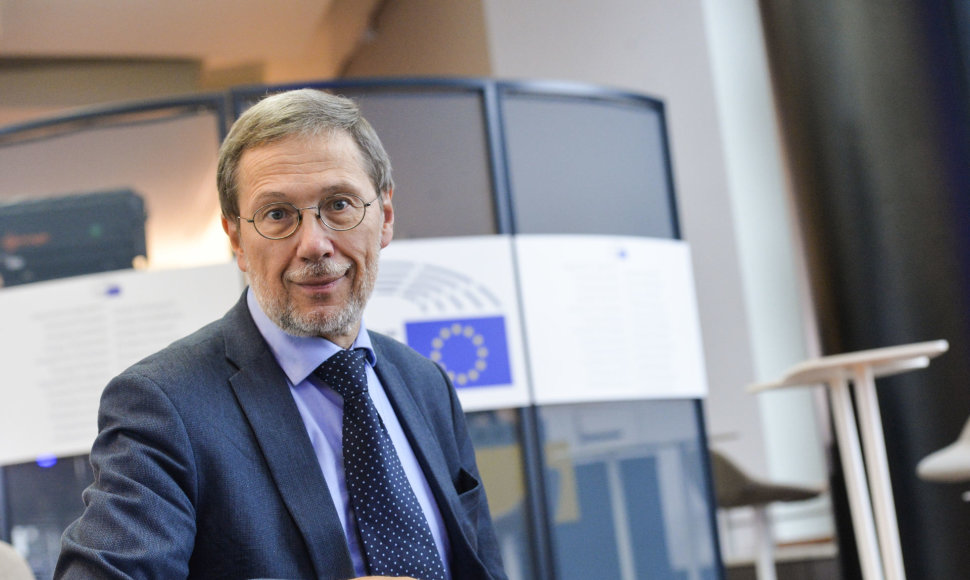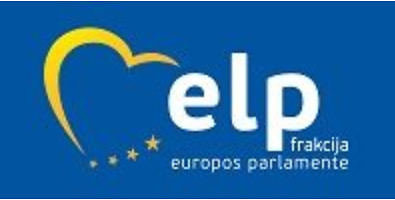As a member of the Delegation for Relations with Belarus at the European Parliament, I often experience ambiguous feelings. At the start of term in autumn last year, it might have appeared that there were at least a few issues in common with the Belarussian government. Back then, seemingly, one could have expected as a minimum formal discussion between the EU and Belarus. Both the European Commission and the EU’s ambassador to Belarus undertook certain initiatives which benefitted ordinary Belarusian citizens. At least a few small steps were made: trade dialogue is underway, whatever their shape – so are discussions on Astravyets, visa and re-admission regimes are being eased. But today we are seeing the true face of dictator Lukashenko. It appears that the citizens no longer wish to settle for Lukashenko who has held power in Belarus for 26 years and is no longer capable of projecting the image of “at least somewhat democratic” elections, starting to make use of arrests and repressions against political opponents already now. It is an effort to deter political opponents and the nation, regardless of the measures required.
The approaching elections serve only to open further the world’s eyes to the situation in Belarus. There is a simple fact – we are dealing with a non-democratic state. However much we may hope that the relations between the West and Belarus will change, I continue returning to texts I have written, books, essays and various other publications and I realise that the situation has been stagnating for several decades now. Repressions occurred in both 2006 and 2010 when the election results were announced. This year the situation has only changed to the extent that there is nothing left to “please” the people with – the economic situation is only worsening and the government’s actions in the face of COVID-19 have vastly undermined any trust in the government.
Last week, I addressed the European Commission regarding the current situation in Belarus. In my letter, I presented three key problems: human rights abuses in the country during the pre-electoral period, the COVID-19 pandemic situation in Belarus and the safety evaluation of Astravyets Nuclear Power Plant. We have to accept that this combination of factors, which put in doubt the safety of Belarus, places the entire region in extreme peril. It is believed that the real situation with regard to the scale of the COVID-19 pandemic is being concealed. It is suspected that the country, which never did bar mass public events, has a far larger number of COVID-19 infections and victims than is officially declared. At the same time, the situation regarding the safety of Astravyets NPP is also not improving. NO real actions have been taken with regard to meeting the highest safety requirements, all the while Belarus promises that the first reactor will be working at full capacity as soon as February 2021.
This whole situation is complicated by mass repressions and arrests which have been incited by the approaching presidential elections and which are carried out in an effort to hamper the sharing of real data on the aforementioned risk factors. I asked the European Commission what urgent actions are being taken with regards to the region’s security situation, which is worsening due to Belarus’ behaviour, whether demands are made for Belarus to disclose and regularly present updated information to relevant EU institutions about the real situation regarding COVID-19 infection and victim numbers, as well as on the safety of Astravyets NPP and whether real sanctions will be taken due to human rights abuses in Belarus. If so, then what actions? What response do I expect from the commission? Most likely several: EU sanctions on Belarus about the repressions taking place during the electoral campaign and the clear facts regarding the Astravyets NPP safety investigation, as well as the demand to reveal the real numbers for COVID-19 and commit Belarus to provide transparent information.
Returning to the topic of the upcoming presidential elections in Belarus and Lukashenko’s lowest ratings during his entire rule. The message is clear – change is looming. Is a democratic election realistic in this country? Since the start of the electoral campaign, over 700 individuals have been arrested, this includes the main opposing candidates and ordinary citizens, as well as bloggers and journalists. Are democratic elections possible without a free press? The question is probably rhetorical. Back in early June the US, UK and EU made a joint declaration, urging the Belarussian government to run a fair, peaceful and free presidential election. Just last week, the head of the European Union’s diplomacy Josep Borrell expressed the Union’s concern over human rights breaches and called for a halt to repressions against the main opposition candidates. According to him, the EU is inclined to continue seeking cooperation with Belarus, but only if it sees positive change. The numbers, however, portray something altogether different – the OSCE, which has been monitoring elections since 1995, has yet to recognise a single election in this country as free and fair.
Yesterday, the final list of candidates who will run in the Belarussian presidential election was unveiled. And yes, our doubts were confirmed – the Belarussian electoral commission presented information that A. Lukashenko’s main rival, former banker V. Babaryko will not be registered. Let me offer a reminder that he has been under arrest since June for supposed financial crimes. I believe that an additional motive to imprison Babaryko was also that he isn’t just “any” dissident, but a former member of the ruling elite. So the following five will compete in the elections: A. Lukashenko, Andrey Dmitriev, Hanna Kanapatskaya, Svetlana Tsikhanovskaya and Siarhei Cherachan. It could be that these registered opponents will take a certain part of the vote, but who knows? Perhaps the motive of “anyone, but the incumbent” will emerge…
The EU’s rapid and timely reaction yesterday is especially important – the Union criticised the Belarussian electoral commission’s actions and expressed a position that it will await an invitation from Minsk for the OSCE to observe the elections. Spearheaded by J. Borrell, the EU recalled the Union’s core value – human rights. While the EU respects Belarus’ sovereignty, if people continue to be arrested on the streets, imprisoned and to face violence, we will not stay silent. After the candidate announcement, peaceful protests were held once again yesterday and during them, over 100 people were arrested. Civic society wants change. And frightening news is emerging from the places of incarceration. It is clear that under cover of the pandemic, those arrested are left without the right to call a lawyer, meet with family members, they are not allowed walks. This list of instruments to create an inhumane environment can be continued further, but then a warning would have to be appended that “certain phrases will be shocking.” We must defend human rights, the right to dignity. So will the country have its own Maidan? Changes are needed in Belarus immediately. The country’s economic situation has not improved for the past decade. And now, new forecasts are emerging on news media that Belarus’ economy will suffer even more in autumn. People will lose their jobs.
Another topic of my concerns is the true COVID-19 situation in the country and I have no doubt this relates to economic conditions. When the World Health Organisation announced the COVID-19 pandemic in March, Lithuania, other EU countries and almost the entire world declared quarantines. But A. Lukashenko, as you might recall, invited everyone to mass public works in the country, organised a Victory Day parade in May and when the electoral campaign began, shook hands with people in public spaces. Let me reiterate here – the virus is not a tool for political manipulation. It is a physical threat. Yes, it is currently no secret that Belarus is one of the hardest-hit countries in the world by the ratio of population to infections. Daily statistics continue to reveal that the infection rate remains quite high in the country, but its government changes little in its approach. Back in late June, Lukashenko himself stated that a quarantine would ruin the country’s economy and “there would be nothing to eat.” However, then there is the question of whether a failure to control the virus will lead the country to an even greater economic abyss and whether people will go out into the streets even before the elections, less in the name of political changes and more out of unbearable poverty? Lukashenko is caught in his own trap. What is most frightening is that no one knows whether those infected receive adequate treatment and whether virus outbreaks are contained. Unfortunately, many countries around the world are not democratic, but the right to health should be respected even there. What impact could this have on surrounding countries? We do not know for certain, but if Europe is already concerned about the uncertainty surrounding the coronavirus situation in Belarus, then perhaps it might be the right time to reflect on how we will live with Astravyets NPP and what the price of this lack of safety will be?
In regards to Astravyets NPP, let me repeat – this is a real physical threat in front of any real political debate. I find there to be a lack of a clear position on Astravyets from Lithuanian officials, while the positions of the other Baltic States and the European Union remain ambiguous as well. Sometimes, I am simply left with the sense that many of us have already given up. But then I remember that this monster, which is to run at full power from February 2021, almost a year after it was turned on (nuclear fuel for the first reactor arrived from Russia in early May and, according to an announcement by the Belarussian Ministry of Energy, the reactor should be launched in July), stands right on the Lithuanian border. It stands in a non-democratic state. Meanwhile, Astravyets NPP itself has been built due to billions being lent to Belarus by the Kremlin - for the same Belarus whose economy is in dire straits. Astravyets NPP is nothing other than a political tool which the Kremlin will seek to use to control the Baltic States. It is excellent that Lithuania decided it has no intentions of using this nuclear power and let us hope that this stance remains firm. I hope that Latvia and Estonia will take this path as well. In June, during the Eastern Partnership summit, European Commission president Ursula von der Leyen declared that the question of nuclear security is important for the European Commission and so Belarus must ensure the highest safety requirements are upheld. The Belarussian leadership responded that it is prepared to perform a peer review report of its stress tests. So signs do emerge that discussions are ongoing, but I believe that they are not enough. I stand by the opinion that this power plant is fundamentally unsafe from the very moment its location was chosen.
The topic of Belarus is always very complex from whatever point of view we might look or whatever relations we might be discussing. Nevertheless, let us have hope that Belarus has a chance to take a different road and begin writing a different history. A positive history.
Professor Liudas Mažylis is a member of the European Parliament’s Delegation for Relations with Belarus and a member of the Lithuanian Movement Against Astravyets NPP.













